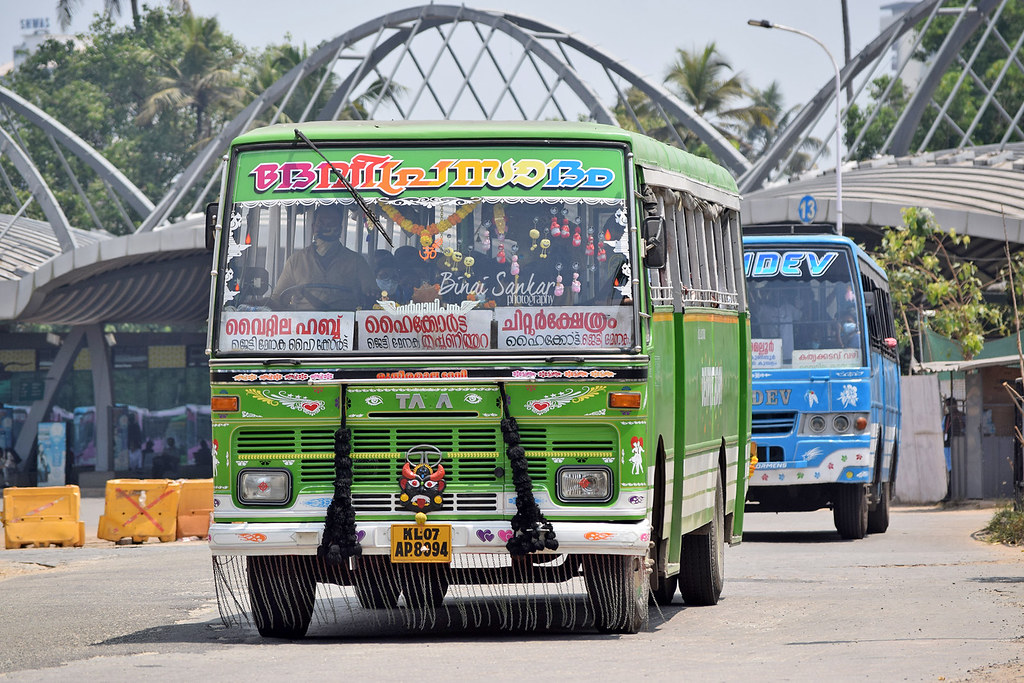Articles

Women’s Empowerment in the Bartending Industry in Kerala: A Call for Action
August 16, 2023
വിദ്യാർത്ഥി കൺസെഷൻ നൽകാം ബസുടമകളെ സമ്മർദ്ദത്തിലാക്കാതെ
August 16, 2023Reanalysing the Student Concession in Kerala

The development model of Kerala emphasises a welfare state, however, there is a lack of adequate documentation recognising the participation of private players in the welfare and development of the State. The public transport sector of Kerala has turned a blind eye to the burden of student concession on the private players in the field. In Kerala, the concessional fare for students was introduced back in 1963 to provide a nudge to the students who would otherwise not be able to access schools due to the physical distance and the existence of very few educational institutions. The private operators offered the subsidised fare to the students and bore the brunt of welfare, not the state government. There has been neither any reimbursement nor any tax concession towards meeting this expenditure to help the private operators from the government side even after so for many decades. While the state budget for 2023 promised a 10% tax reduction to the operators, it remains inadequate to address the losses from the concession.
The concessional rate fixed by the state is 20% of the regular ticket fare for the students commuting for educational purposes. While this has proved to help students from an economically weaker section, the lack of revision of these fares has led to a loss in services. This move disincentivises the private players rather than letting them coexist with the state operators. Due to noncompetitive environment in the sector, the number of buses operated by the private players had come down from 32000 to 12000 in the recent years. The pressure to adhere to these norms has made the private players hesitant to allow students on the bus. During peak hours, 50% or more of the passengers are students, which leads to a considerable loss to the bus operators and the regular commuters do not get sufficient space to board the bus as it is filled with students. This has also resulted in agitated behaviour by the conductors of the private buses towards the students. Today, these concession fares are also being exploited by students who use them for travel purposes other than commuting towards their educational institutions, the brunt of which is faced by private operators.
The demography of Kerala has significantly changed since the concessional fare was introduced due to the rapid urbanisation and growth of the middle-class population. Back in 1963, the population who benefited from the concessional fare was almost the same who were cross-subsidized to balance the loss of revenue of the private operators as they were heavily dependent on public transport. However today nearly one in four families in the state has a car and the state has around 95 lakh motorcycles registered now. That says the poorer people of the society continue to be cross-subsidized and shoulder the cost of the welfare scheme with the private operators for the travel of students who belong to higher socio-economic backgrounds. The state has also witnessed the mushrooming of private as well as public schools in the neighbourhoods where most parents prefer to choose access and quality of education over affordability. The shift in the socio-economic changes in society demands a revisit to the old policy of concessional fare to students and reanalyse who should be the beneficiary of the scheme and who should pay the cost.
The inclusive Kerala model has a significant contribution from the private players in various sectors but these services are not acknowledged and documented in the literature. Student concession is a good example as it is the private operators who shared the brunt of the burden of subsidising students’ travel costs for many decades and not the state. Proper documentation of the losses would give a truer picture which will acknowledge the role of private bus operators in the welfare system and identify the inadvertent consequences of such a measure on the general public, private bus operators and the entrepreneurial climate of the state. The current policy needs to be revisited and revamped in such a way that the actual beneficiaries of this welfare scheme are identified and suggest alternative mechanisms to support the scheme without burdening the private entities.
This article was first published on Kerala Kaumudi (16-08-2023)
Views expressed by the author are personal and need not reflect or represent the views of the Centre for Public Policy Research.



